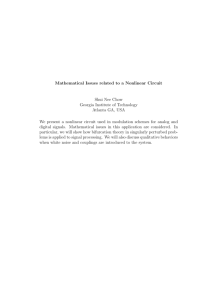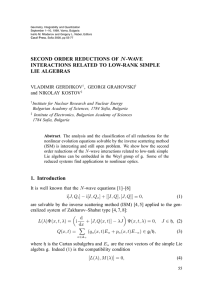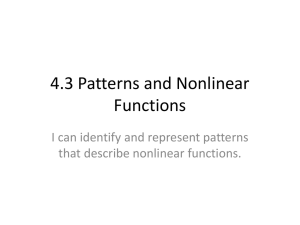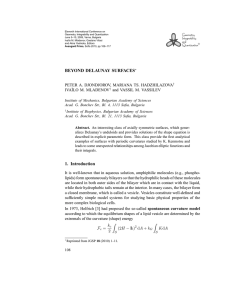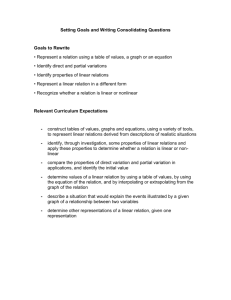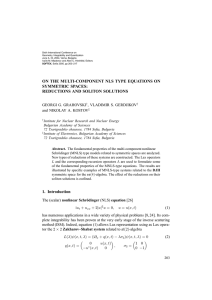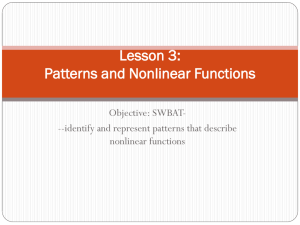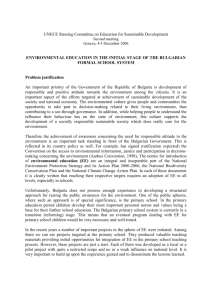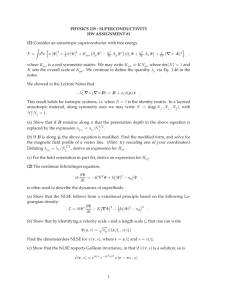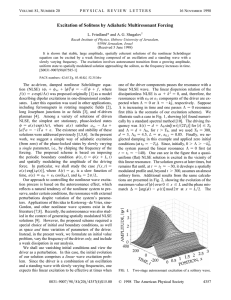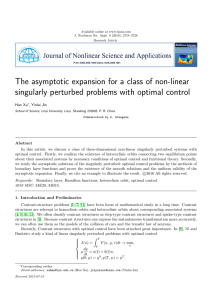Document 10583875
advertisement
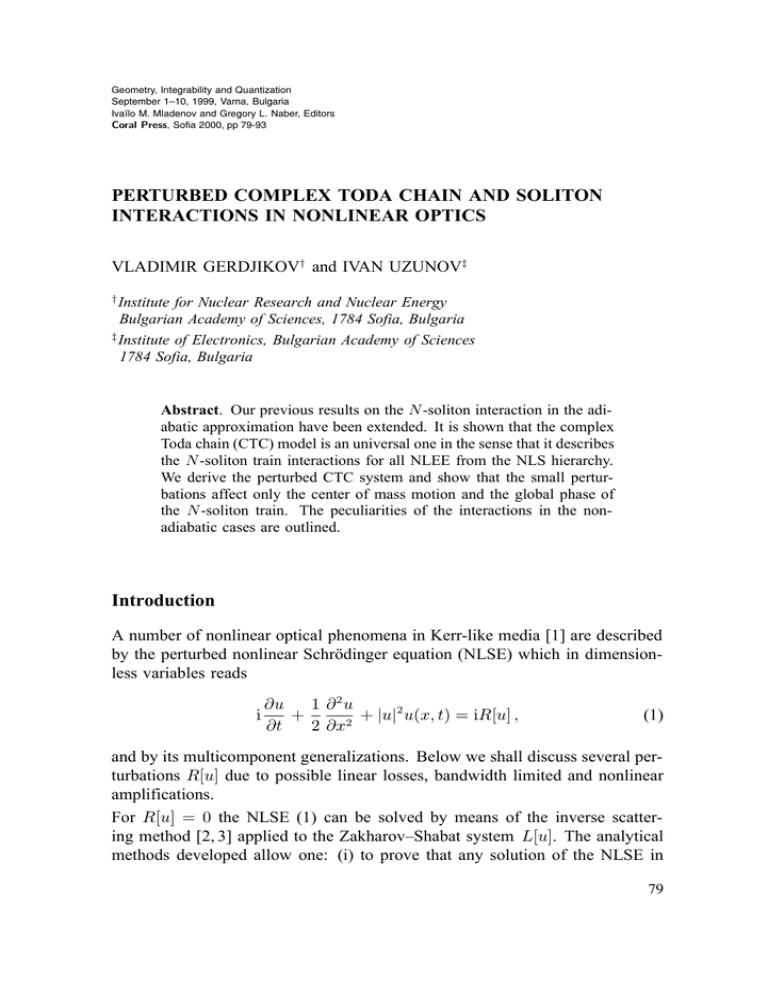
Geometry, Integrability and Quantization September 1–10, 1999, Varna, Bulgaria Ivaïlo M. Mladenov and Gregory L. Naber, Editors Coral Press, Sofia 2000, pp 79-93 PERTURBED COMPLEX TODA CHAIN AND SOLITON INTERACTIONS IN NONLINEAR OPTICS VLADIMIR GERDJIKOV† and IVAN UZUNOV‡ † Institute for Nuclear Research and Nuclear Energy Bulgarian Academy of Sciences, 1784 Sofia, Bulgaria ‡ Institute of Electronics, Bulgarian Academy of Sciences 1784 Sofia, Bulgaria Abstract. Our previous results on the N -soliton interaction in the adiabatic approximation have been extended. It is shown that the complex Toda chain (CTC) model is an universal one in the sense that it describes the N -soliton train interactions for all NLEE from the NLS hierarchy. We derive the perturbed CTC system and show that the small perturbations affect only the center of mass motion and the global phase of the N -soliton train. The peculiarities of the interactions in the nonadiabatic cases are outlined. Introduction A number of nonlinear optical phenomena in Kerr-like media [1] are described by the perturbed nonlinear Schrödinger equation (NLSE) which in dimensionless variables reads i 1 ∂2u ∂u + + |u|2 u(x, t) = iR[u] , ∂t 2 ∂x2 (1) and by its multicomponent generalizations. Below we shall discuss several perturbations R[u] due to possible linear losses, bandwidth limited and nonlinear amplifications. For R[u] = 0 the NLSE (1) can be solved by means of the inverse scattering method [2, 3] applied to the Zakharov–Shabat system L[u]. The analytical methods developed allow one: (i) to prove that any solution of the NLSE in 79

